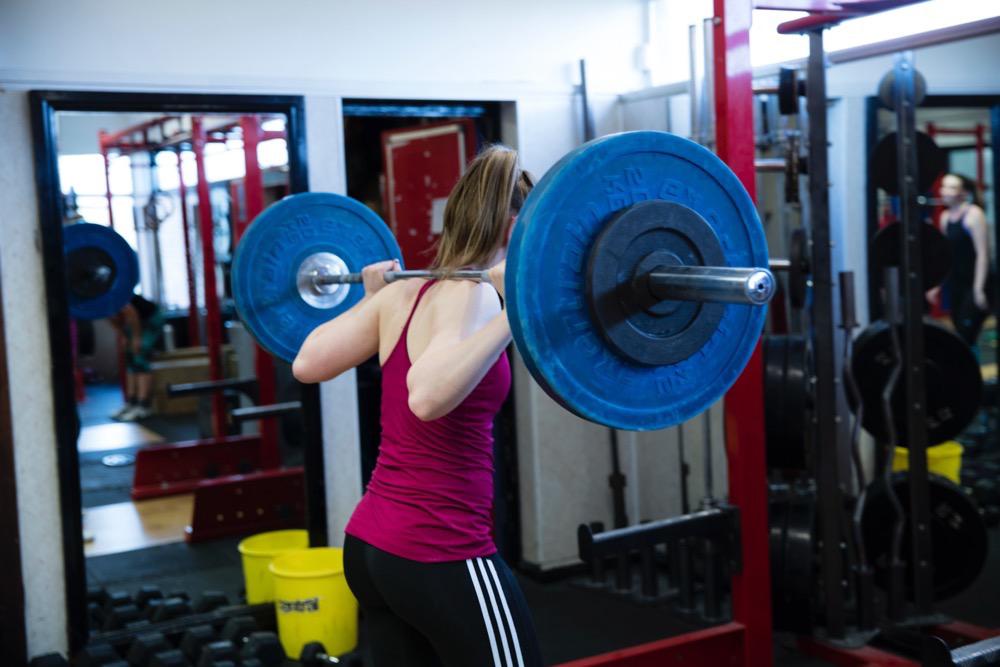The squat is one of the most worthwhile exercises used to stay healthy and to develop an athletic physique.
The full squat, plays an essential role in a Weightlifters training regime, also popular with many sports people and now more and more gym users are incorporating this great exercise into their training plans to create an athletic physique and improve health.
To obtain the true benefits associated with squatting the exercise has to be performed correctly, a full (deep) squat, with sound technique and performed on a free bar – not within a fixed piece of equipment, such as a Smith machine. Performing front, back and over-head squats massively aids sports performance, health and physique.
Coaching weightlifting, sports conditioning and teaching PE since 1996 I have seen many people benefit from squatting, both younger and older.
The benefits of squatting.
1. Adds intensity to training and athletic muscular development – Squatting gives the major muscles in the legs a very demanding workout, the core muscles are active throughout the exercise to ensure correct posture and many other muscles are used throughout the squat to balance and co-ordinate the movement. The first time you add squats to your session – you will definitely feel more taxed than a machine based session.
2. Squatting makes you more mobile – squatting in the full range of movement improves the flexibility of the joints in the lower body, spine and especially the ankle. Being strong in a full range of movement not only aids sports performance, but also helps with every day activities. Picking up and lowering down heavy items, climbing / walking up and down steep terrain.
3. There is much research stating that strength training has a positive affect on bone density and joint stability. Squatting is a great strength training exercise.
4. Other research suggests adding strength exercises to your training plan – helps protect you against obesity, diabetes and cardiovascular disease.
5. Squatting keeps your legs and core strong – this is vital for maintaining general mobility as you become older.
6. Squatting helps you develop an athletic physique – it’s an excellent multi-muscle exercise toning and tightening the lower leg, your thighs, your behind and your abdominals.
7. Strength training increases sports performance – many of the athletes and sports people I have worked with notice they are more physically prepared for competition and are able to perform at a higher level. Sprinters have experienced they can drive out of the blocks more powerfully and have strong muscular contractions to sprint quicker. High jumpers and throwers can contract muscles quicker to apply more force at the take off and through the leg drive. Rugby players can cope with the physicality of the modern game, increase force during the tackle, hit harder, more efficient in ruck and scrum. Distance athletes who incorporate squats into the their regime, although with a high repetition range to work on muscular endurance, can improve their work-rate, especially up hills and during demanding areas of a race course. These are just a few examples. Squatting is a key exercise for many Sports.
In summary, some may find the squat difficult to begin with, although when mobility and core strength has improved so will squat technique, a smooth movement and the amount of weight lifted. The benefits don’t happen straight away, it is a long term process and extremely beneficial for health and sports performance.
Simon Roach
Strength Academy Wales

